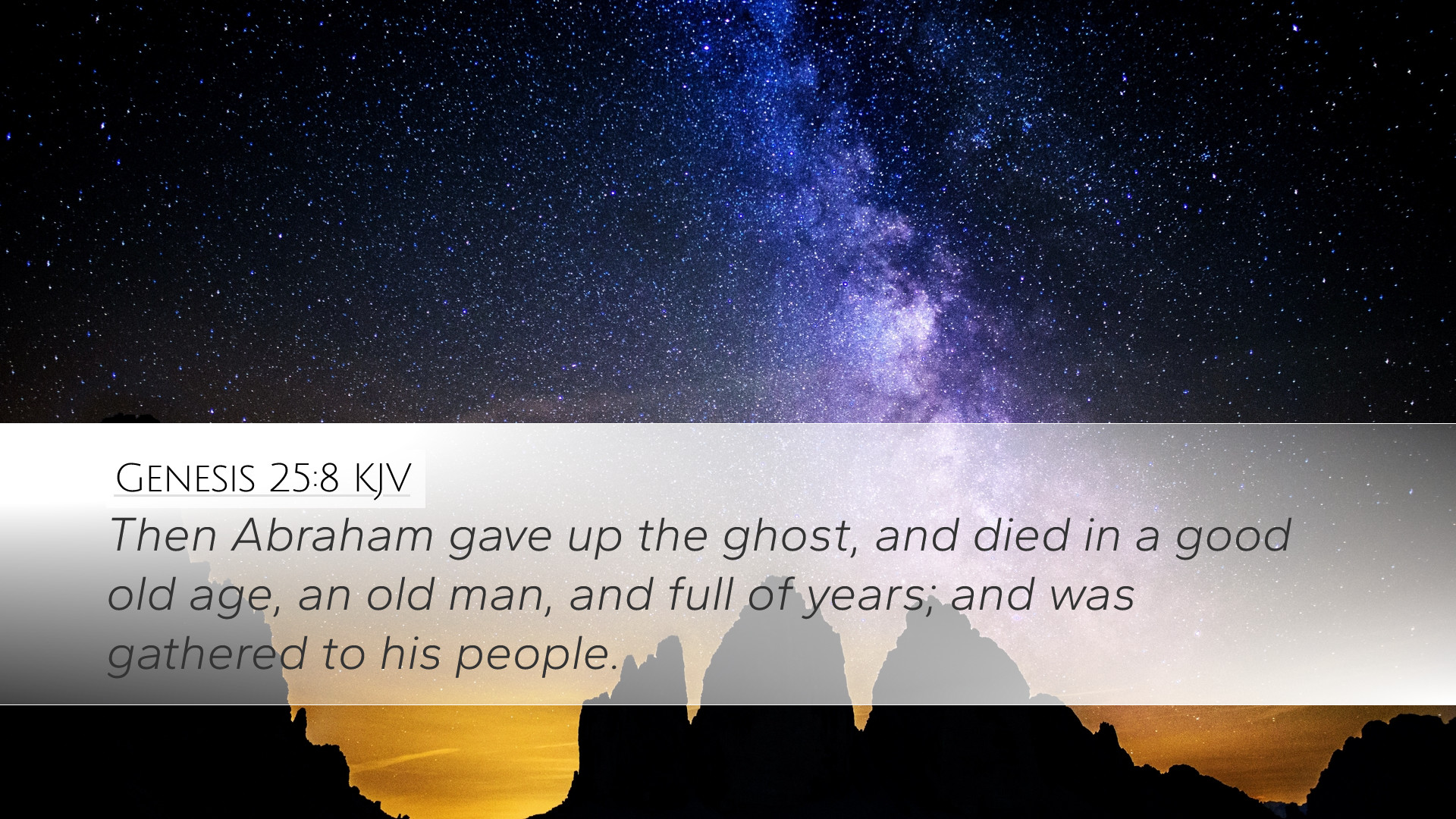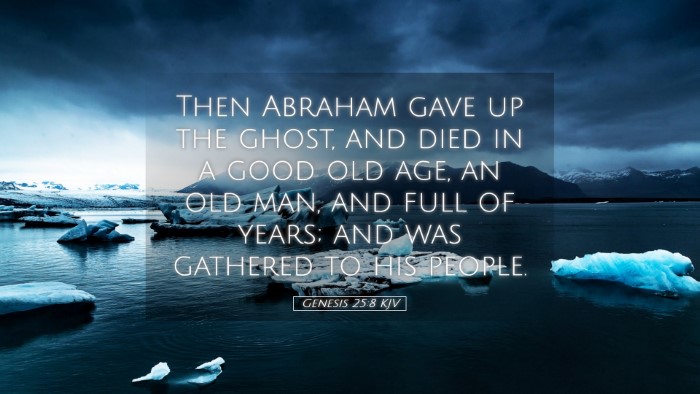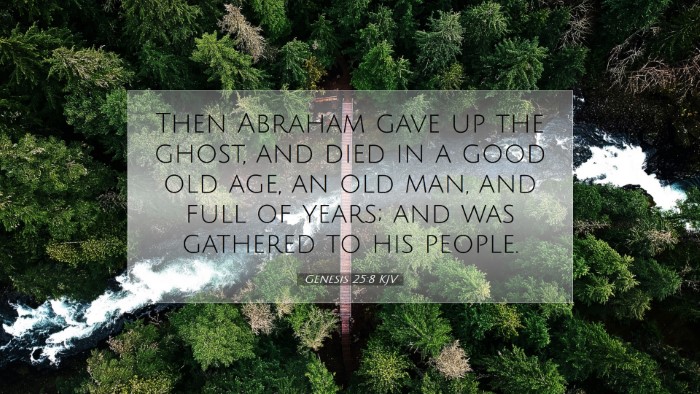Commentary on Genesis 25:8
Verse (Genesis 25:8): "Then Abraham gave up the ghost, and died in a good old age, an old man, and full of years; and was gathered to his people."
Introduction
The passage marks a pivotal moment in the narrative of Abraham, the patriarch of the Hebrew people. It encapsulates the life of a man who fulfilled his divine mission, illustrating the themes of promise, legacy, and divine fulfillment. This commentary draws from the insights of renowned biblical scholars Matthew Henry, Albert Barnes, and Adam Clarke to explore various theological, historical, and practical dimensions of this verse.
Exegesis
Genesis 25:8 serves as a concluding remark on Abraham’s life. The Hebrew phrase used here indicates not just death, but a complete coming to an end of his earthly journey. The structure of the verse highlights three key aspects:
- Death as a Transition: "Gave up the ghost" signifies a relinquishment of life. Scholars highlight that this phrase underscores the belief in an immortal soul existing beyond physical demise.
- A Good Old Age: The notion of aging is celebrated. In ancient Near Eastern culture, a long life was seen as a favor from God and a sign of blessing.
- Gathered to His People: This expression implies continuity in the life to come, suggesting a reunion with ancestors and the faithful.
Theological Insights
From a theological standpoint, this verse reflects the faithful culmination of God’s promises. Abraham’s life was characterized by faith and obedience, and his death represents not an end, but a fulfillment of God’s plan.
- Fulfillment of Promise: Both Henry and Clarke emphasize that Abraham's life was marked by the promise of progeny and land. His death illustrates the assurance that God remains faithful to His promises even beyond life.
- Legacy of Faith: Abraham is revered as the father of faith (Romans 4:16). His death in 'full of years' is a testament to a life well-lived, reflecting the importance of a spiritual legacy.
- Hope in Resurrection: The phrase 'gathered to his people' is interpreted by many scholars to involve an affirmation of hope in the afterlife, anticipating the resurrection theme prevalent in later biblical texts.
Practical Applications
For pastors and theologians, the implications of Genesis 25:8 extend into several areas of Christian ministry and pastoral care:
- Comfort in Mourning: This passage can serve as a source of encouragement when ministering to those grieved by loss, emphasizing the hope of eternal life through faith.
- Encouragement for the Elderly: The portrayal of Abraham's old age as 'good' can encourage older adults to view aging as a phase of wisdom and fulfillment within God’s plan.
- Guidance for Legacy Building: The verse can serve as a reminder for believers to invest in a legacy of faith, influencing future generations in their relationship with God.
Reflection on Abraham's Life
Abraham’s narrative in Genesis is rich with lessons about obedience, faith, and divine promise. His journey from Ur of the Chaldees to the Promised Land was fraught with challenges yet reveals a character steadfast in trust and devotion to God. This verse serves as a final commendation of a life that honored God amid trials.
- Obedience to God's Call: Throughout his life, Abraham responded affirmatively to God’s commands, a testament to the call of discipleship still relevant for believers today.
- Faith in Unseen Futures: Abraham’s waiting for the fulfillment of God’s promises encourages contemporary believers to maintain faith even when outcomes are not immediate.
- Community and Legacy: Abraham's relationships, such as those with Sarah, Isaac, and his extended family, illustrate the importance of community in nurturing faith and achieving God’s purposes.
Conclusion
Genesis 25:8 poignantly encapsulates the life journey of Abraham, providing profound insights into faith, fulfillment, and the nature of existence beyond the grave. This commentary, drawing from historical and theological perspectives, encourages reflection on one’s walk with God, the importance of leaving a faithful legacy, and the hope of eternal life. As believers reflect on this passage, they are reminded of God’s unwavering faithfulness and the call to live faithfully until the end.


